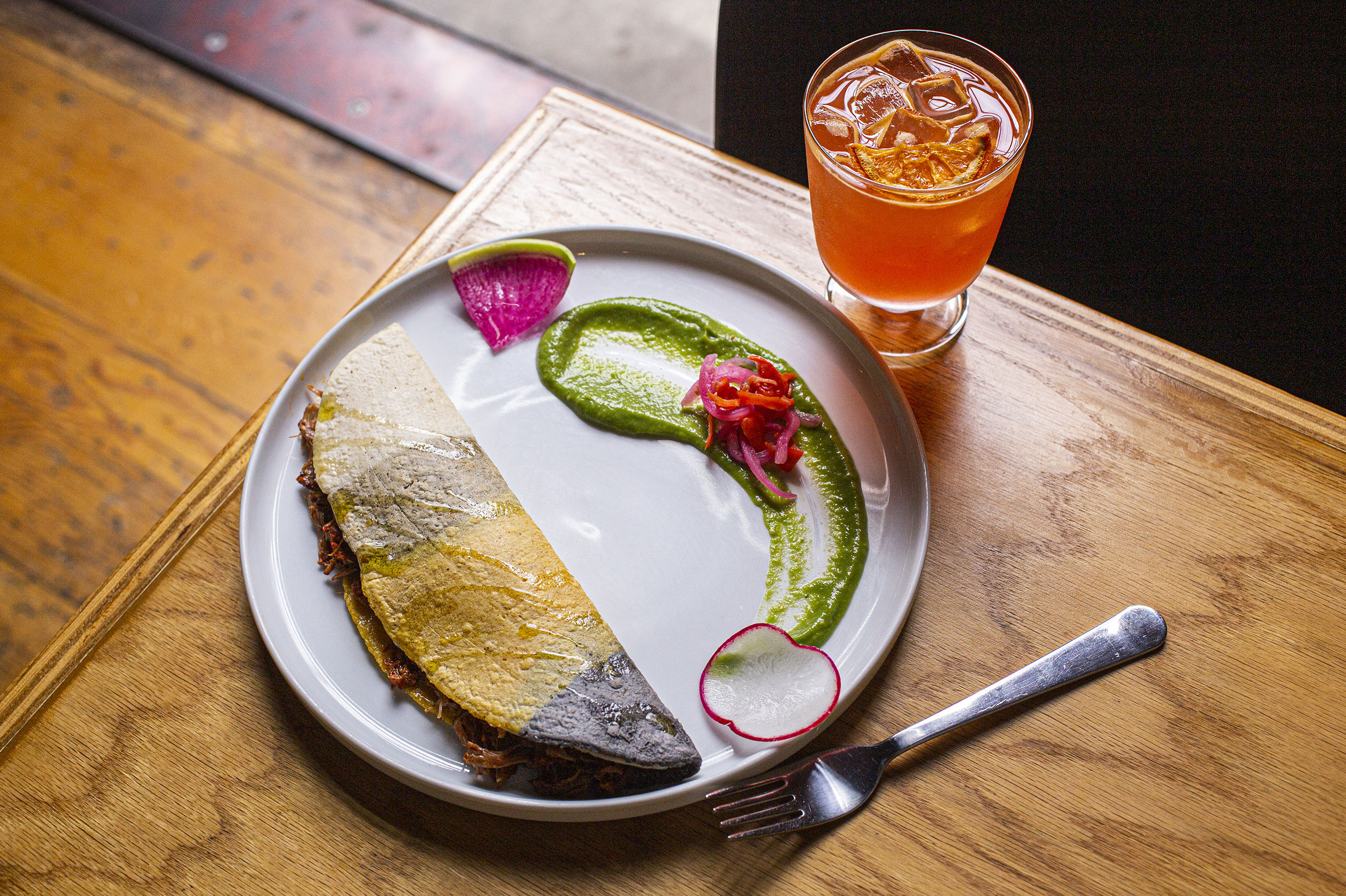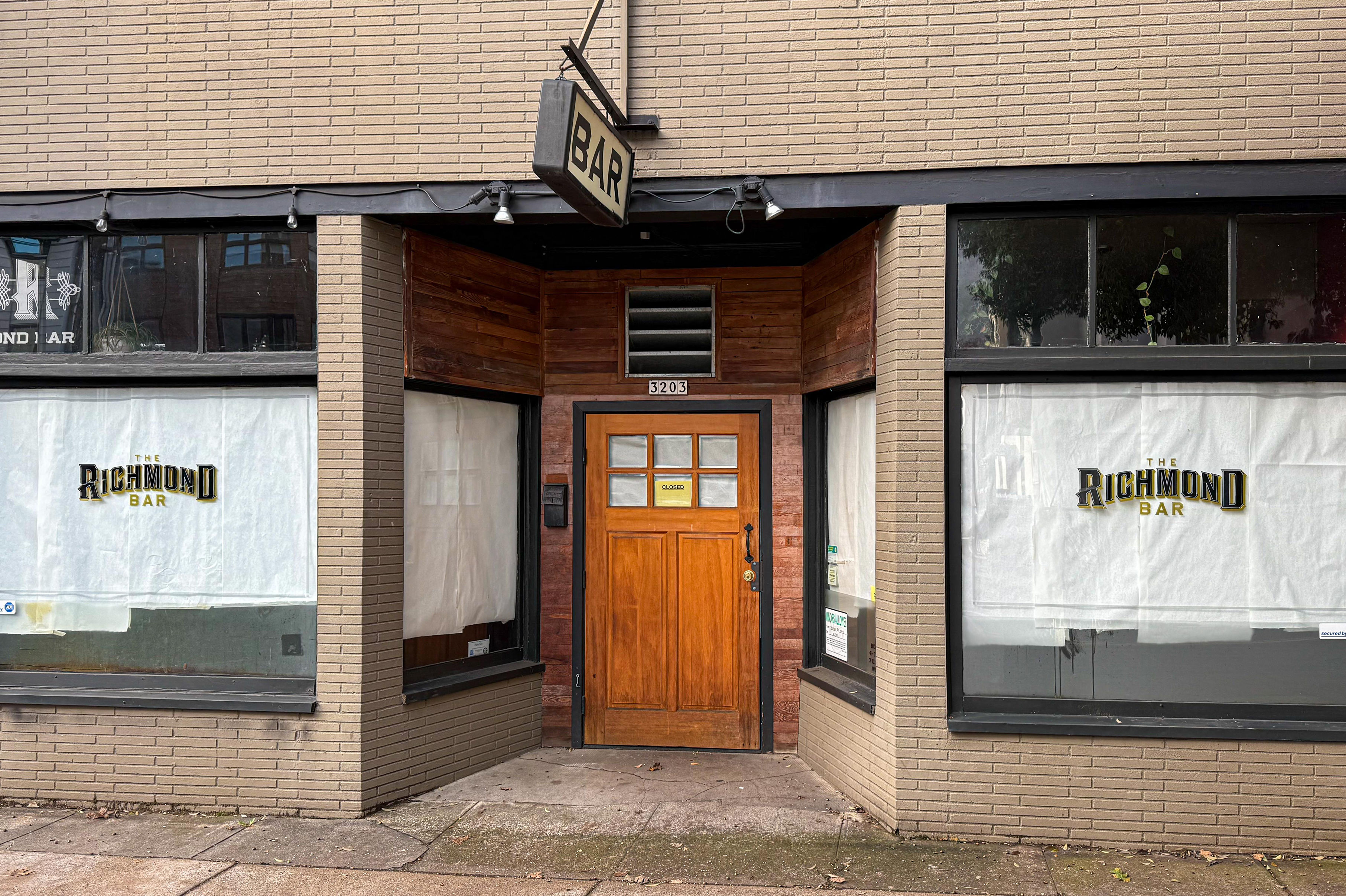Portland’s Acclaimed Castagna Is Dead. Long Live Castagna.
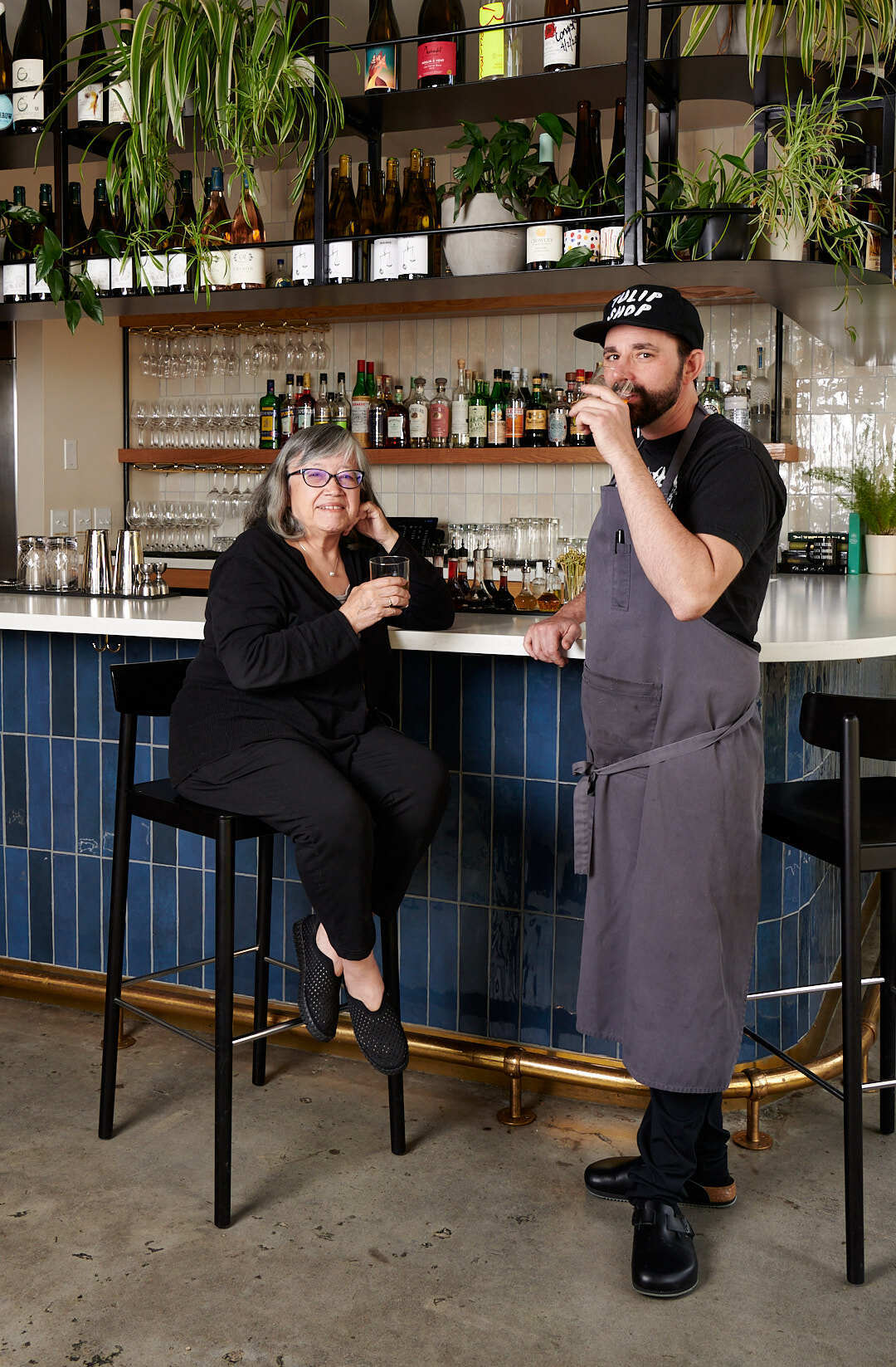
Castagna owner Monique Siu and chef Justin Woodward toast their new life at next door's OK Omens.
Image: Courtesy Dina Avila
For two decades and change, Castagna defied the gods of reason to create some of the best meals in Portland’s history. Four of the city’s most acclaimed chefs made their bones here: heroic “chef’s chef” Kevin Gibson (Davenport); charcuterie champ Elias Cairo, (cofounder of Olympia Provisions); Matthew Lightner, who went on to win two Michelin stars and open McMinnville’s forward-thinking Okta; and from 2011 to present, the poetic Justin Woodward.
Berlu’s Vince Nguyen, a James Beard finalist for Best Chef Northwest 2023, logged several tours of duty under Lightner and Woodward, honing the modern techniques that now undergird his exciting Vietnamese tasting menus.
Through it all—the empty dining room nights, the Great Recession, Portland’s willful resistance to fine dining—owner Monique Siu has never wavered in her mission: to bring art and beauty, ideas and grace to the Portland table.
Now, after going pandemic dark on March 15, 2020, it’s official. Siu is waving the white flag. Castagna is not coming back. “Many people thought it was already gone,” Siu admits. “But in my mind, it wasn’t. People keep asking if we’re coming back. I never addressed it in a public way. Now, it’s time to let go.” With this, one of the last of Portland's defining, farm-driven, fine-dining dreams is gone.
The decision coincides with the rise and evolution of Ok Omens, Castagna’s casual spin-off next door at 1758 SE Hawthorne Blvd. What started in 2018 as a wine bar with some fun snacks has grown into a fixture on PoMo’s Top 50 Portland restaurants, with its own personality, sexy pastas, and intricate desserts. It’s also a playground for Siu’s business partners, Castagna vets Woodward and Brent Braun, the esteemed house somm. The wheels are already turning for the trio’s potential next project: an intimate dining experience in a room hidden in the back of Castagna, perhaps later this year.
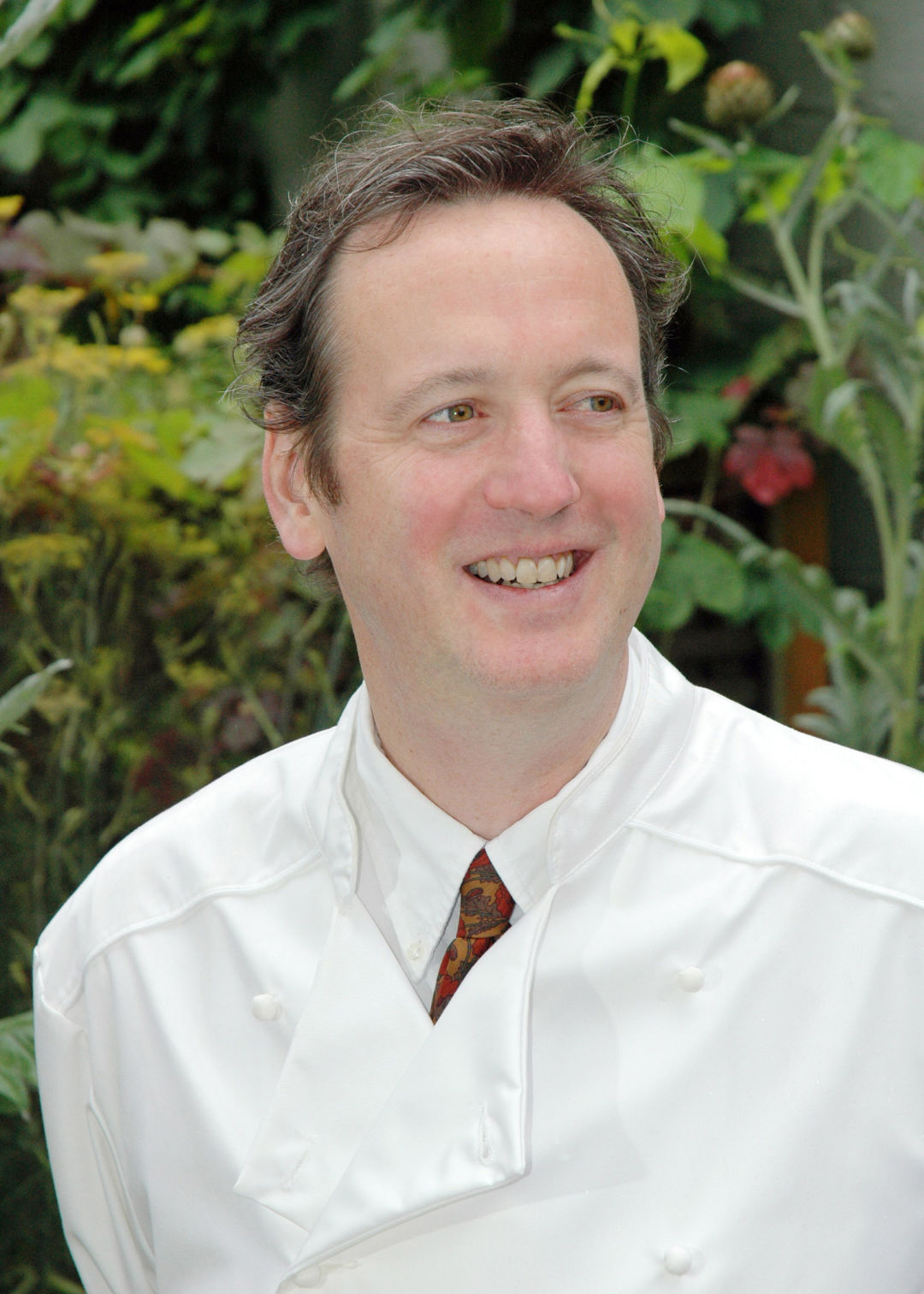
Castagna's founding chef Kevin Gibson, 1999
Image: Courtesy Castagna
what will we remember about Castagna? Where to start. The Gibson years, of course, 1999–2007. The agnolotti is still a happy memory, fat with ricotta, mint, and nettles. The butter lettuce salad, nearly an entire head of it, glistening with tarragon, vinaigrette royale, and a thousand snips of chives is one of the most dignified salads I’ve ever met. But mostly, I recall Gibson’s “this is my life” dedication, the kind of devotion known to drive cooks mad. Former Bon Appétit’s critic Andrew Knowlton once called him a “mad genius.” Elias Cairo, a former Gibson disciple who helmed the kitchen from 2007–2009, once told me, “Kevin never cuts a corner. He gets distraught when a restaurant does something half-ass. A tiny stem in a salsa verde ruins his day. I love that about him.”
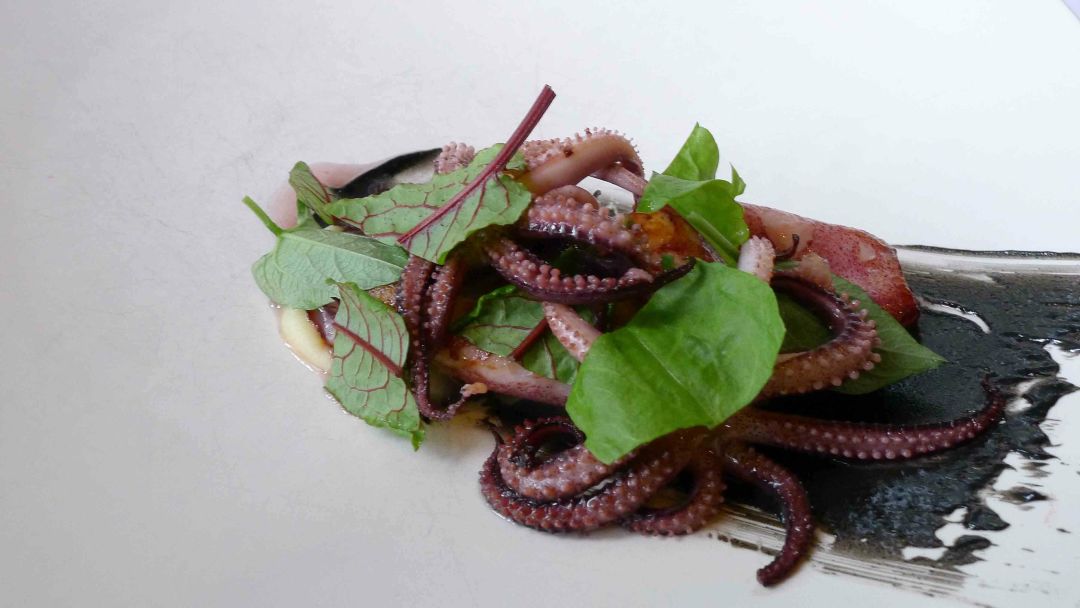
A dramatic squid dish by Matthew Lightner
Image: Courtesy Gideon Bosker
In 2009, young chef and forager Matthew Lightner arrived, fresh from the trenches of San Sebastian’s avant-garde Mugaritz, which GQ called “the most adventurous restaurant in the world.” Overnight, Castagna, shy wallflower and keeper of old-world traditions, was suddenly Lady Gaga—bold and otherworldly, with flavors that could hit you like a stun gun. What did he bring to Portland? An uprooting of ideas. A willingness to dig deeper for a definition of place, forest floors to tidal pools. At Castagna, Lightner was the first chef to challenge the “farm-to-table” status quo through a cascade of wild botanical dioramas.
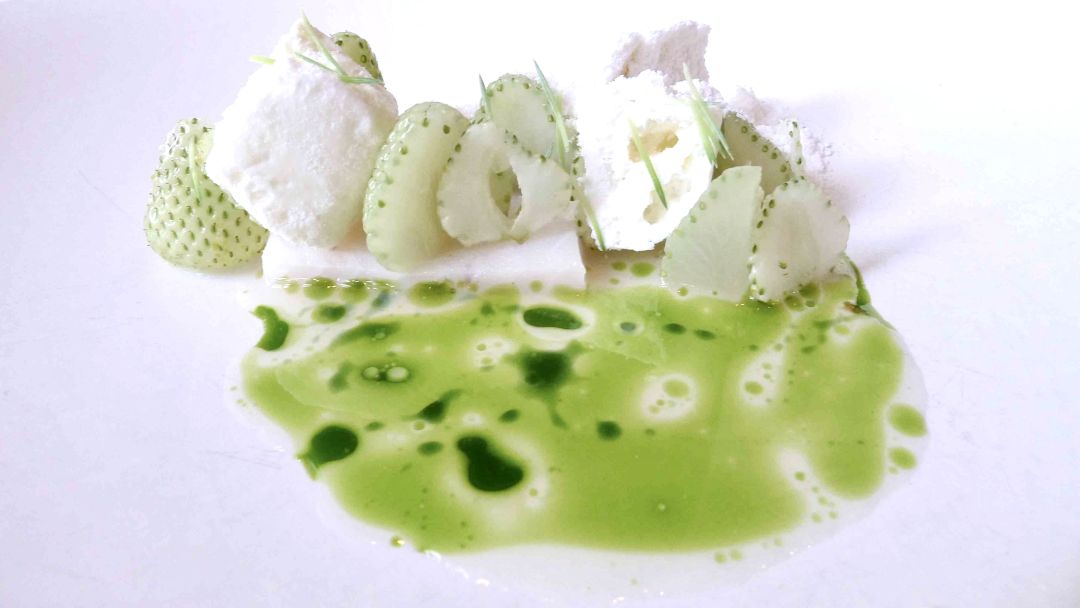
Matthew Lightner's green strawberry dessert
Image: Courtesy Gideon Bosker
For me, one dish said it all: a crisscross of long, brown salsify roots soaked in sweet, fleshy wild licorice and honey, then rolled in teeny leaves and bark-like shavings of toasted hazelnuts. Were they fallen logs in a mossy forest or a reminder of Oregon’s logging history? Maybe they were just amazing vegetable sticks that paired brilliantly with charred meat. I only know I never forgot the excitement of thinking about it.
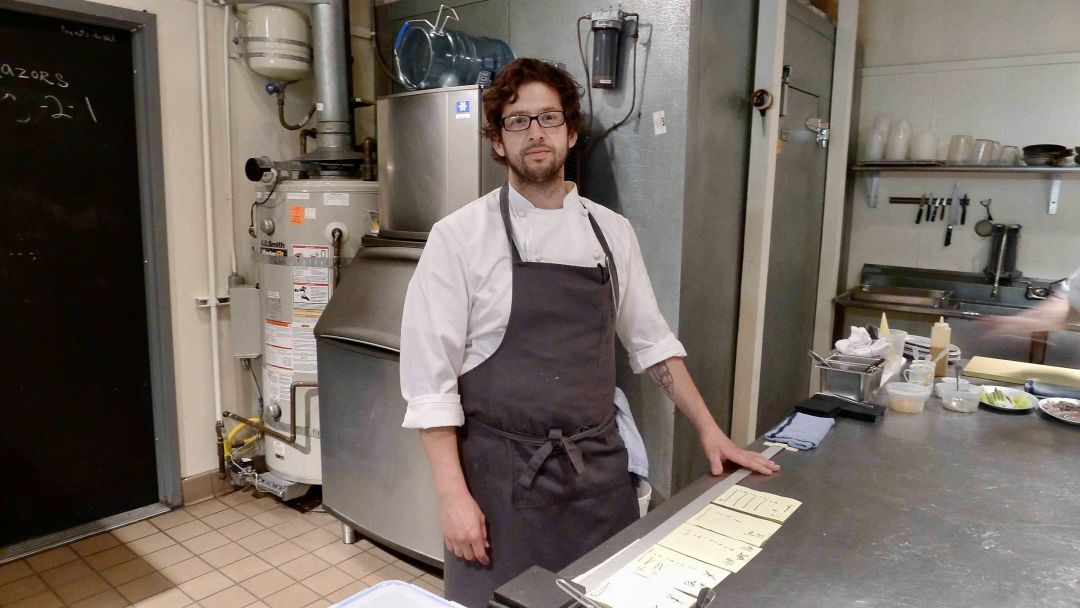
Matthew Lightner in the Castagna kitchen in 2010
Lightner’s Castagna years were a high mark of Portland food history. Notably, he went on to wow even jaded New Yorkers and win multiple accolades before returning to Oregon to open Okta last year. He was a new kind of storyteller, tracking a place for himself among the region’s iconic imagists: writer Ken Kesey, Native American painter James Lavadour, a landscape artist of searing emotion; even the band of world-music pioneers called Oregon, who inspired astronauts to take their soundtrack straight to the moon. It was a new vision of the Northwest experience, told through plates.
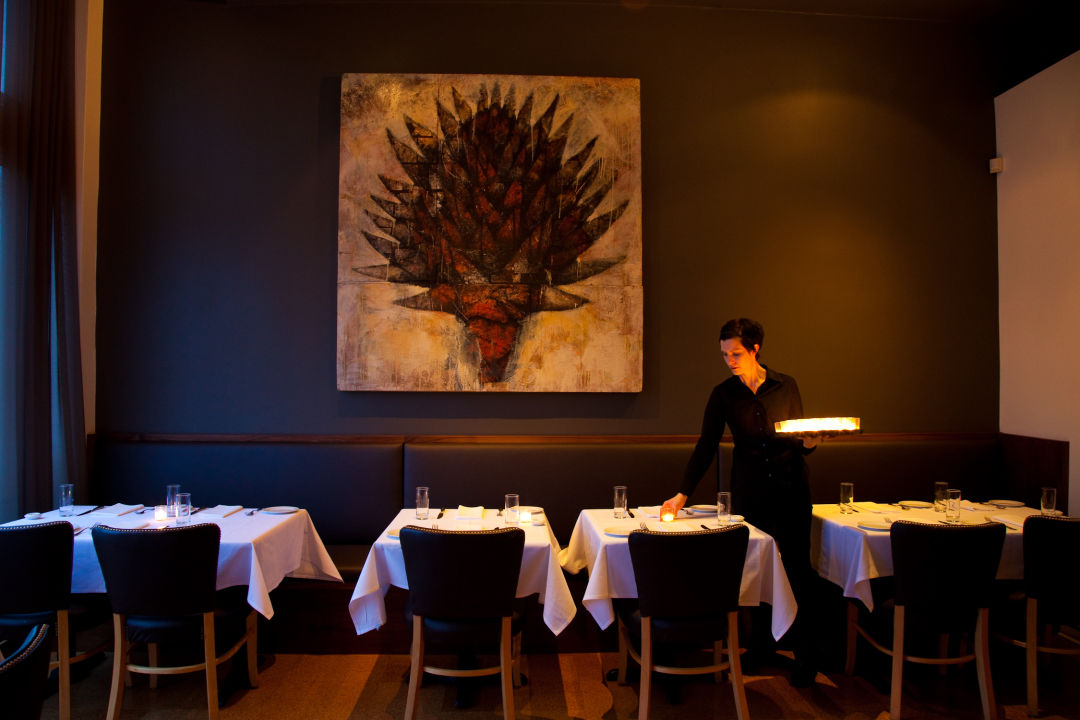
A glimpse into the Castagna dining room
Image: Courtesy Castagna
Think about it: In a wild gamble on modernist cooking, Monique Siu threw out everything that was familiar to herself and customers. She did this in the midst of a recession, as Portlanders reveled in food trucks and sandwich shops. “The scene was becoming very safe,” she says. “Everyone was looking at food and cooking in the same way. I just didn’t want to do that with another chef.”
She also felt an instant kinship with Lightner’s first kitchen recruit, Justin Woodward, known for technical skills, dessert artistry and experience at New York’s WD-50, a trailblazing modernist kitchen. When Lightner headed to New York in 2011, Woodward took over the top job, adding fresh meditations on Oregon’s grocery cart as he found his own voice a few years later. I once described the way he tackles fresh asparagus like Uma Thurman training in Kill Bill.
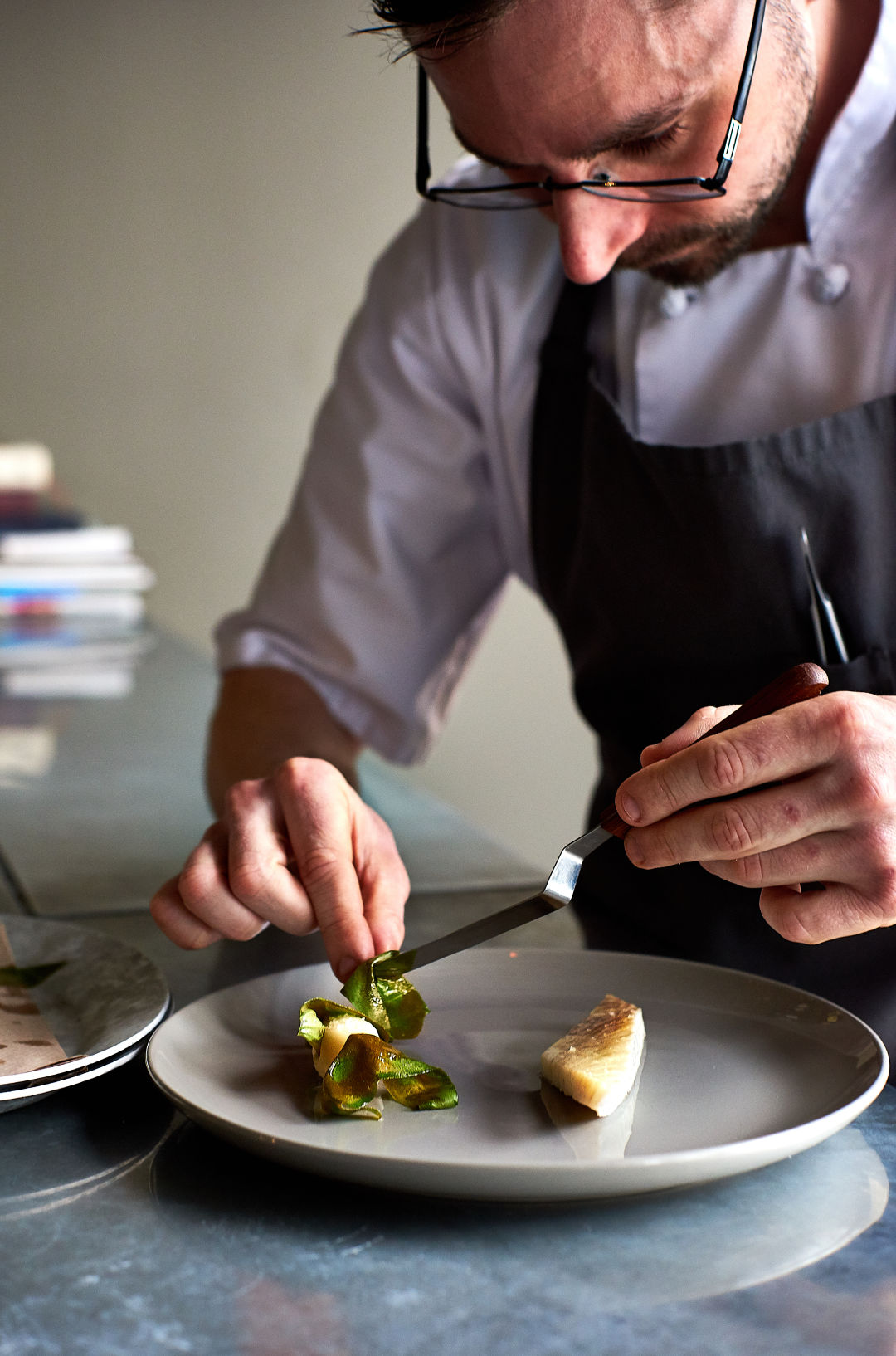
Justin Woodward plates in the Castagna kitchen.
Image: Courtesy Dina Avila
Woodward received multiple James Beard Northwest Best Chef nominations, though until recently, he never got the attention he deserved from Portland. His best ideas were excitedly out of the box. For months, I obsessed over his edible “terrarium,” layered in a glass with dreamy onion custard and bright green onion-stalk puree standing in for soil below a greenhouse of leaves and flowers. You just had to sign on for a tasting menu to get it—an hours-long experience that could leave your butt numb.
“I don’t know if people are interested in that kind of experience right now,” says Siu. “I’m waiting to come to some conclusion when they will be ready.” But Woodward believes an audience for fine dining is out there. “Places are serving expensive meals,” he says. “Maybe not tasting menus, but wagyu, foie, and caviar are now on menus around town.” For their next project, he’s considering fine dining a la carte.
Prior to the pandemic shutdown, Woodward recalls spending four months revamping Castagna’s menu, making sure everything was perfect. Two days after serving it, the restaurant had to shutter. “It was horrible, just such a letdown,” says Woodward. “What have I gleaned in these past few years? It doesn’t matter. Just do what you want to do.”
Castagna’s legacy is many stories over many years. It’s Kevin Gibson’s intelligence, profound reserve, and defiant untrendiness. It’s Matt Lightner, cooking the apex of food and cuisine, out of time and place, along a bus line in SE Portland. It’s Justin Woodward discovering ramekins of Elias Cairo’s meat starter hidden in the cooler—the secret petri dishes for what would become Olympia Provisions.
But mostly, it is Monique Siu, the cofounder and pastry chef of the famed Zefiro, which changed the game in the 1990s. Quietly, without swagger or fanfare, Siu stands as one of Portland’s most essential and dogged restaurateurs, with a vision for life and an eye for talent.
We’ll remember the days of white linen, the graceful service, the ways Castagna made us feel grown-up. We’ll remember the determination to be the best. We’ll remember the unfailing commitment to what grows here.
“We’ve wavered a bit here on supporting farmers,” says Cairo, who remembers watching iconic mushroom hunters and eccentric growers delivering their goods to Castagna’s kitchen as a young chef. “Restaurants aren’t talking as much about how important it is. More cooks are shopping at Sheridan’s. That’s not a crime, of course. But it would baffle Monique.”
